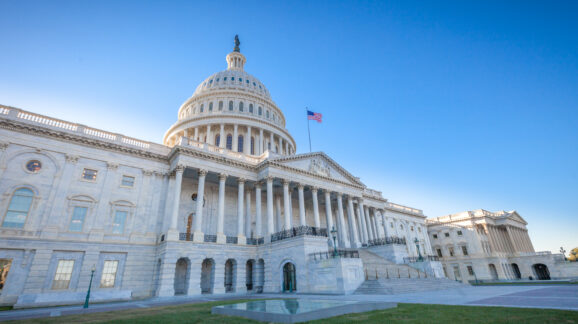Congress shouldn’t party like it’s 2019 on national debt

Photo Credit: Getty
Now comes the GOP’s turn to do its own version of a “lockdown.” Republicans should heed the advice of a member of the other party, Rahm Emanuel, and not let this debt crisis go to waste.
The GOP-run U.S. House of Representatives’ new “Limit, Save, Grow Act of 2023” proposes to increase the debt limit, yet again, by $1.5 trillion. In exchange for this increase, the bill would roll back unspent American Rescue Plan and Inflation Reduction Act funds, nullify the Biden Administration’s contested student loan debt forgiveness, repeal or modifying an assortment of distortionary and counterproductive green tax credits, and cancel the new army of 87,000 IRS agents.
For good measure, it would also require Congress to henceforth approve major agency regulations with the REINS Act thrown into the mix.
Those are all good policies, and yet…
The year 2019 was not so long ago. We will run up against the new proposed GOP debt ceiling of just shy of $33 trillion , approved in that year, very soon. We know this since the deficit was over a trillion dollars for the first six months of the current fiscal year.
The levels of deficits alone used to represent the height of all federal budget outlays. For years, Congress has needed to pursue a far more aggressive federal government downsizing program. The debt ceiling may be one of the last standing federal institutions capable of restoring constitutional normalcy by forcing actual cuts on spending.
Things were already excessively bloated in 2019, when total debt stood at $23 trillion.
Moreover, we know from experience that the Senate is unlikely to accept the REINS Act, so there need to be fall back regulatory reform provisions. These fallbacks could be the Guidance Out of Darkness (GOOD) Act or other measures that have bipartisan pedigree such as a Regulatory Reduction Commission; requirements for “one-in, one-out” for regulation; or even for rudimentary regulatory budgeting.
For those of us who think that the federal government debt of $31 trillion is already large enough, thank you very much, there is some satisfaction in the efforts being made here, but also ample cause for worry.
While there is a damper on discretionary spending, entitlement and defense spending continue their unabated surge. This is confounding to any vision of permanently downsizing Washington.